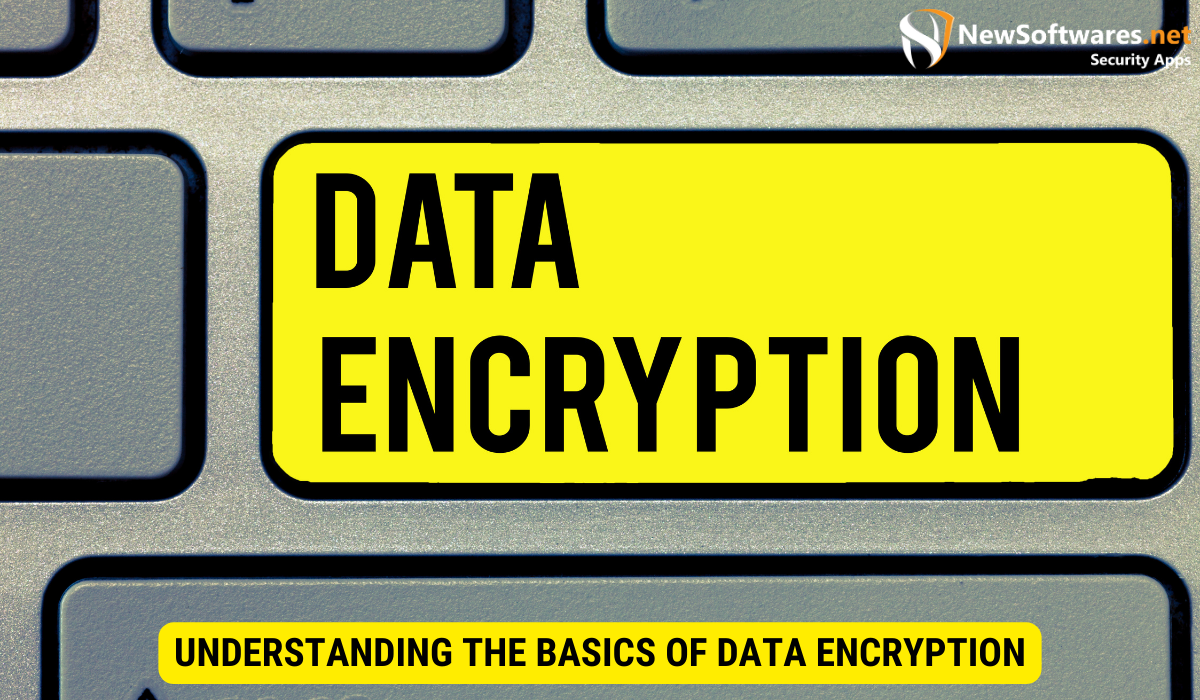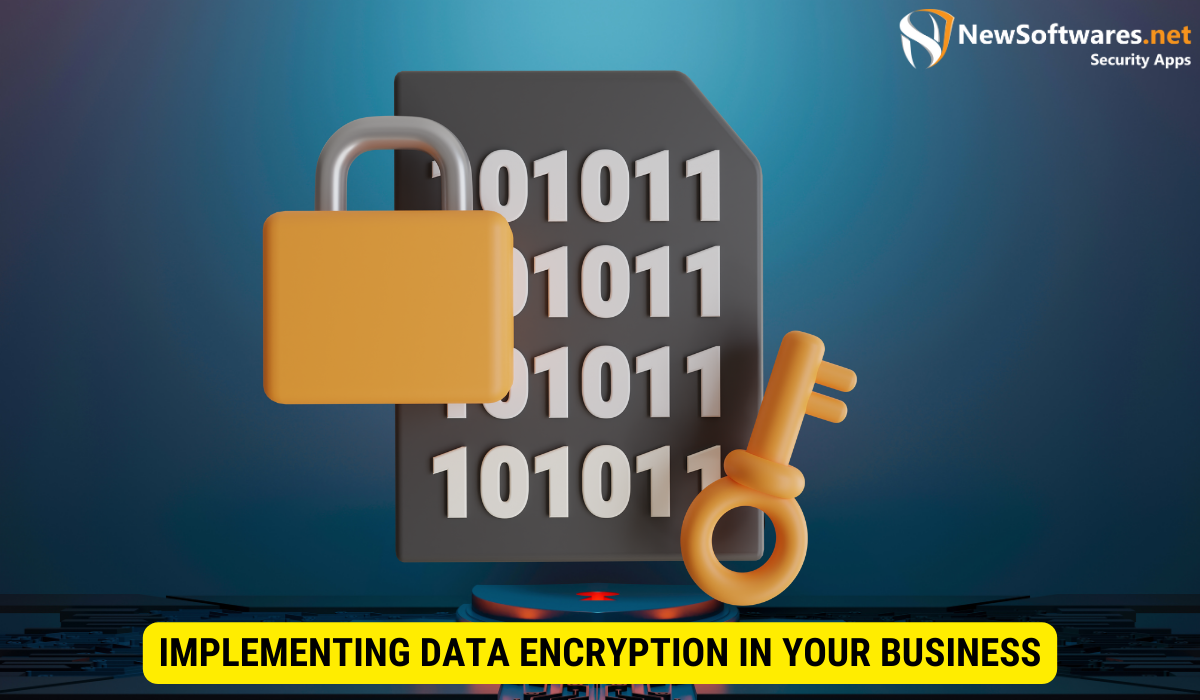Data encryption is essential for professionals as it safeguards sensitive information, prevents data breaches, ensures compliance with regulations, and mitigates risks associated with unauthorized access.
In today’s digital age, data security has become a paramount concern for professionals across all industries. With the increasing incidence of cyber threats, it is vital for organizations and folks alike to prioritize the protection of their sensitive information. One of the most effective strategies for safeguarding data is through encryption. Together, we will delve into the basics of data encryption, highlight the importance of encryption for professionals, explore its role in compliance, shed light on the impact of not encrypting data, and provide insights on how to implement data encryption in a business setting.
Understanding the Basics of Data Encryption

Data encryption is the method of transforming plain text into a code or cipher, making it unreadable to anyone who does not possess the decryption key. By encrypting data, professionals can ensure that unauthorized individuals cannot gain access to sensitive information, even if it falls into the wrong hands.
Data encryption relies on advanced algorithms and mathematical formulas, which scramble the data into an unreadable format. Only authorized parties who possess the appropriate decryption key can decode the code and access the original information.
But what exactly is data encryption and why is it so important? Data encryption involves transforming data from its original form into an unreadable format. This ensures that even if the data is intercepted or accessed without authorization, it remains incomprehensible to those without the decryption key. Encryption protects the secrecy and integrity of information, making it an essential security measure in today’s interconnected world.
There are several types of encryption algorithms that exist, each with its own unique methodologies and strengths. Some common forms include symmetric encryption, asymmetric encryption, and hashing algorithms. Symmetric encryption uses a solo key to both encrypt and decrypt the data. Asymmetric encryption, on the other hand, uses a duo of keys – a public key for encryption and a private key for decryption. Hashing algorithms, on the other hand, do not use keys but instead transform the data into a fixed-length string of characters, making it impossible to reverse-engineer the original data.
The choice of encryption method depends on the specific needs and requirements of an organization. Symmetric encryption is often faster and more efficient, making it suitable for encrypting huge amounts of data. Asymmetric encryption, on the other hand, provides better security as it uses dissimilar keys for encryption & decryption. Hashing algorithms are commonly used for verifying the integrity of data, ensuring that it has not been tampered with.
In conclusion, data encryption is a crucial aspect of modern-day security. It ensures that sensitive information remains protected from unauthorized access, even if it falls into the wrong hands. By understanding the basics of data encryption and the different types of encryption algorithms available, organizations can make knowledgeable decisions to safeguard their data and maintain the confidentiality and integrity of their information.
The Importance of Data Encryption for Professionals
Professionals handle vast amounts of sensitive and confidential information on a daily basis. Whether it is customer data, financial records, or proprietary business information, protecting this data is not only ethically responsible but also necessary for maintaining trust with clients and stakeholders.
When it comes to the importance of data encryption for professionals, there are several key factors to consider. Let’s delve deeper into why data encryption is crucial for professionals in various industries.
Protecting Confidential Information
Data encryption helps professionals uphold confidentiality by rendering the information unreadable and useless to unauthorized individuals. Encryption involves converting plain text into ciphertext, which can only be decrypted with the right encoding key. By encrypting sensitive data, professionals can prevent unauthorized access, fraud, or data breaches that could result in severe reputation damage and legal consequences.
For example, imagine a healthcare professional who handles patients’ medical records. These records contain very sensitive information such as medical history, diagnoses, and treatments. Encrypting this data ensures that even if it falls into the wrong hands, it remains unreadable and unusable, protecting patients’ privacy and complying with data protection regulations.
Preventing Data Breaches
Data breaches are a growing concern for professionals and organizations of all sizes. The economic and reputational impacts of a data breach can be devastating, with potential loss of intellectual property, financial loss, and negative publicity. Encrypting data significantly reduces the chances of sensitive information falling into the wrong hands, preventing data breaches before they occur.
Consider a scenario where a financial professional handles clients’ financial records, including bank account details and investment portfolios. Encrypting this data adds second layer of security, making it extremely difficult for hackers to access and misuse the information. By implementing robust encryption measures, professionals can safeguard their clients’ financial well-being and protect their own reputation as trusted advisors.
Moreover, data breaches can also occur due to physical theft or loss of devices. Professionals who frequently travel or work remotely are particularly vulnerable to such risks. Encrypting data on laptops, smartphones, and other portable devices ensures that even if these devices are lost or stolen, the data remains encrypted & inaccessible to unauthorized individuals.
Complying with Data Protection Regulations
Professionals in various industries are subject to strict data protection regulations. Compliance with these set of laws is not only a legal requirement but also necessary for maintaining trust and credibility. Data encryption plays a crucial role in meeting these compliance standards.
For instance, professionals in the financial sector must adhere to regulations, for instance the Payment Card Industry Data Security Standard or the (GDPR) General Data Protection Regulation. These regulations mandate the protection of sensitive customer information and impose severe penalties for non-compliance. By implementing robust encryption measures, professionals can make certain fulfillment with these regulations and avoid legal repercussions.
In conclusion, data encryption is of utmost importance for professionals across various industries. It helps protect confidential information, prevents data breaches, and ensures compliance with data protection regulations. By prioritizing data encryption, professionals can safeguard their clients’ trust, maintain their reputation, and mitigate the risks associated with handling sensitive data.
The Role of Encryption in Compliance
Compliance with industry rules and legal necessities is a crucial aspect of any professional’s responsibilities. Encryption plays a vital role in gathering these obligations, ensuring that sensitive data is adequately protected and secure from unauthorized access.
Meeting Industry Regulations
Many industries have specific regulations and mandates regarding data security and privacy. For example, industries such as healthcare and finance have stringent regulations like the Health Insurance Portability and Accountability Act (HIPAA) and the Payment Card Industry Data Security Standard (PCI DSS). Encryption is often a requirement to comply with these industry-specific standards.
Ensuring Legal Compliance
Legally, organizations may be obligated to protect the privacy and security of the data they handle. Failure to do so can consequence in harsh penalties and legal consequences. By implementing encryption measures, professionals can demonstrate their commitment to data protection and meet their legal obligations effectively.
The Impact of Not Encrypting Data
Not encrypting data can have severe implications for professionals and the organizations they work for. Without encryption, sensitive information becomes vulnerable to a wide range of threats and risks.
Potential Risks and Threats
By leaving data unencrypted, professionals expose themselves to risks such as unauthorized access, data leaks, identity theft, and corporate espionage. Cyberattacks are becoming increasingly sophisticated, and without encryption, sensitive information is at a higher risk of being exploited.
Consequences of Data Breaches
Data breaches can have significant consequences for professionals and organizations alike. Beyond financial losses and damage to reputations, professionals may face legal liabilities and regulatory penalties if they fail to protect data adequately. The aftermath of a data breach can be costly and time-consuming, diverting precious resources away from core business activities.
Implementing Data Encryption in Your Business

Professionals must take a proactive approach to data encryption and implement robust encryption practices within their organizations.
Choosing the Right Encryption Tools
There are numerous encryption tools and technologies available in the market today. Professionals should evaluate their specific requirements and choose encryption solutions that align with their needs. Factors such as data sensitivity, scalability, compatibility, and ease of use should be considered when selecting encryption tools.
Best Practices for Data Encryption
In addition to selecting suitable encryption tools, professionals should also adhere to best practices when implementing encryption measures. This includes defining encryption policies, training employees on data security protocols, regularly reviewing and updating encryption practices, and conducting risk assessments to identify potential vulnerabilities.
Key Takeaways
- Data encryption is the course of converting plain text into a code, making it unreadable to unauthorized individuals.
- Encryption is crucial for protecting sensitive information, preventing data breach, and maintaining compliance with industry regulations.
- Not encrypting data exposes professionals to various risks, such as unauthorized access and data leaks.
- Implementing data encryption requires choosing suitable encryption tools and following best practices.
- Data encryption is an necessary security measure that professionals should prioritize to safeguard their confidential information.
FAQs
Q: Is data encryption difficult to implement?
A: While data encryption can involve technical complexities, there are user-friendly encryption tools available that make implementation relatively straightforward. It is important to consult with IT professionals or engage encryption experts to ensure proper implementation.
Q: Can data encryption be applied to all types of data?
A: Yes, data encryption can be applied to various types of data, including documents, emails, databases, and files stored on physical devices or in the cloud. Encryption can shield data at rest, in transit, and in use.
Q: Is encryption enough to guarantee data security?
A: While encryption is a critical component of data security, it should not be the sole measure relied upon. Professionals should adopt a comprehensive approach to data security, which includes encryption, strong access controls, regular security audits, and employee awareness training.
Q: Can encrypted data still be accessed by authorized personnel?
A: Yes, encrypted data can be accessed by authorized personnel who possess the proper decryption keys. The encryption methods used should allow for authorized decryption while keeping unauthorized access at bay.
Q: Can encryption protect against all types of cyber threats?
A: Encryption is a robust security measure, but it cannot provide complete immunity against all cyber threats. It is essential to combine encryption with other security measures, for instance firewalls, antivirus software, and intrusion detection systems to create a comprehensive defense against cyber threats.
Conclusion
Data encryption is not a luxury; it is a necessity for professionals across all industries. The risks and consequences of not encrypting data are far-reaching and can have severe repercussions. By understanding the basics of data encryption, recognizing its importance, and implementing encryption measures effectively, professionals can significantly enhance their overall data security posture. Encryption is an essential tool for ensuring confidentiality, preventing data breaches, maintaining compliance, and safeguarding trust with clients and stakeholders. Take the necessary steps to encrypt your data and protect your professional reputation.
